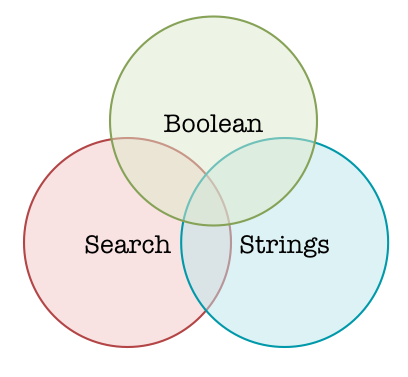Always know where your target candidates are! If you are sourcing for certain types of roles, candidates may likely have their own website with a resume posted. I have found that people on the front-end of web development and some marketers will have their own sites with personal information. Let’s take a look at how to farm out this information. Note that the challenge with this type search is getting around sites that provide resume services.
To start, target your Boolean towards resumes.
People may use “resume” or a similar word, such as curriculum vitae (cv), portfolio, or have an “about me” section. What other terms do you find people use? Always pay attention to the vernacular you see being used and incorporate it into your search string.
To accomplish this on Google, you can use the “inurl” designator; “intitle” is another option. Remember that the title of a webpage is that part that appears in the tab of the web browser. In many blogs, the information will be redundant. For example, on WordPress, the title of the blog will be usually be incorporated into the title of the page and the url.
The base of my Boolean looks something like this: inurl:resume|cv|vitae|portfolio|about|contact | intitle:resume|cv|vitae|portfolio|about|contact
This is the base, so it is replacing the xray or site search portion of my Boolean string. I will try and keep it towards the back of my Boolean string. We will need to evaluate if it is necessary to include spaces between the keywords. If so, the search string is going to be much longer:
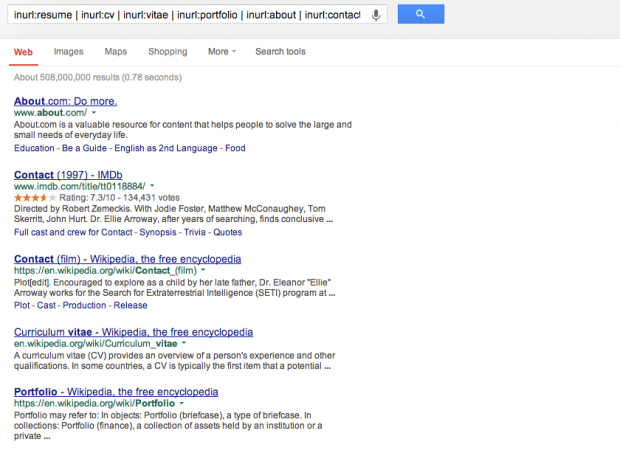
FILETYPE
Next, we will target the filetype the resume (or equivalent) is created in. This may not be necessary if you are targeting someone’s profile information. However, I have seen many times people load a pdf version of their resume onto the website instead of having the resume as a separate page. They may have both. What is more prevelant in the field you are sourcing? You will want to try the search with and without the following portion of the search string:
filetype:pdf | filetype:docx | filetype:doc
The operator “filetype” works on both Bing and Google.
Let’s put together what we have so far:
As you can see, false positives, mostly about writing resumes, are returning.
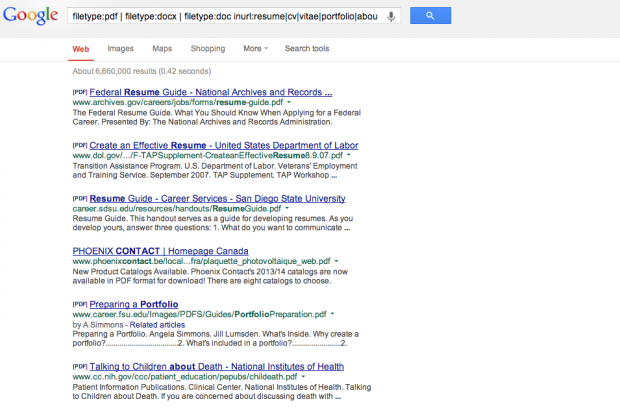
LOCATION
For the location portion of the search string, I am going to use a zip code search and a city name search. For this example, I will use Nashville, TN. When searching zip codes, I like to use www.mapszipcodes.com. To find the appropriate codes, I use a site search coupled with the name of the city:
site:mapszipcode.com nashville
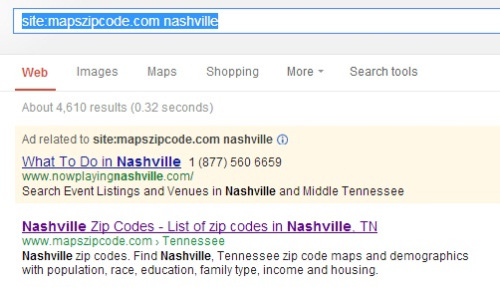
Click on the top link and we get this list:
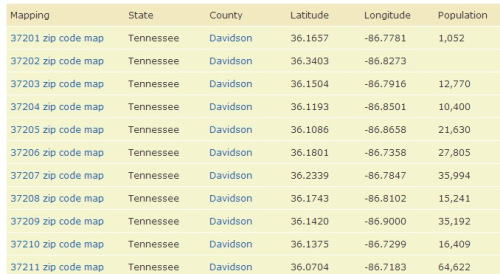
Zip codes are listed sequentially, and in this case, range from 37201 to 37250. The issue with this technique, is that it does not include the surrounding areas of Nashville. If you source within a specific field, you will want to invest the time to get a more accurate range of zip codes.
We might also include an area code portion to the search. The area code in Nashville is 615.
We will represent this portion of the search in our string with the following:
37201..37250 | nashville | 615
Add that to what we currently have:
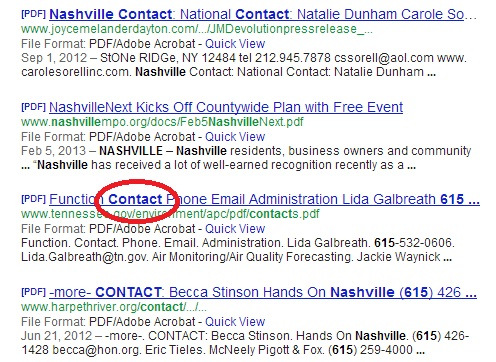
I am actually seeing “contact” more than I would like. I might remove that from my Boolean, as long as I am searching for resumes. I might leave it in if it is pointing me to appropriate people to contact!
You will notice that we already have a pretty long string, and we haven’t even added any keywords to our search! To shorten the string, I may remove the inurl or intitle portion.
KEYWORDS
And finally, keywords! For this example, let’s take a look at User Experience Designers.
This only has one section of keywords, yet we get some decent results:
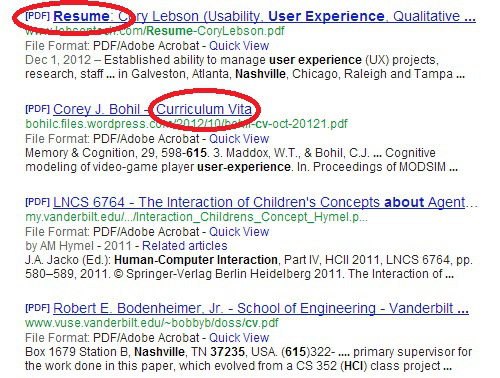
It looks like some false positives are course material related to the term “human computer interaction.” Curriculum vitae is also commonly used for a course syllabus.
Also, since the base of my search string has moved so far down, it is not being weighted as much as I would like. I am going to rearrange the information a little and see if that helps with my results.
This is actually giving some pretty good results. We hit on someone’s WordPress site, a couple of personal websites named after the person, and our false positive is a doc file.
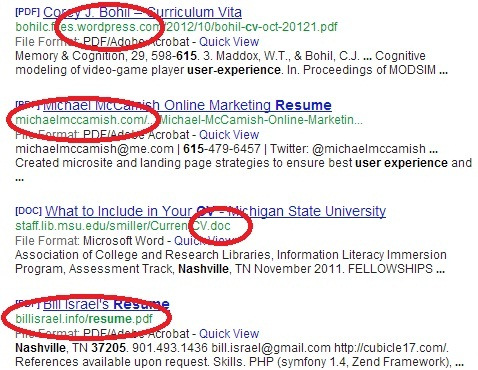
There are some tweaks I might make to the string: remove some portions , add some more keyword sections, perhaps only look for pdf files, but I think you get the general idea here.
PUTTING IT ALL TOGETHER
To summarize, we want to include the following sections in our search string:
- filetype
- inurl or intitle target for resume
- location
- keywords
Remember, you can change the order of your sections depending on how the results are returning. If you want something weighted more, put it closer to the beginning of the search string.
Pay attention to your results. You want to match your search string to how people are using search terms. For example, I saw a few times that the term “vita” was being used instead of “vitae”. I would adjust my string accordingly. If this is something that people are doing in Nashville, I am going to search Nashville using the correct terms.
If you search a particular area frequently, take the time to uncover an all encompassing zip code and area code list. With our Nashville example, I know that the surrounding suburbs are not included in the list used. This is going to leave out a lot of results. Therefore, I would want to research the surrounding areas and their zip codes and area codes to include into my search.
Be creative; be perceptive; and adjust as necessary! Don’t be afraid to share; let me know how you personalize this type of search.
Happy hunting!
This was originally published on Erin Page’s blog, Boolean Journal.
